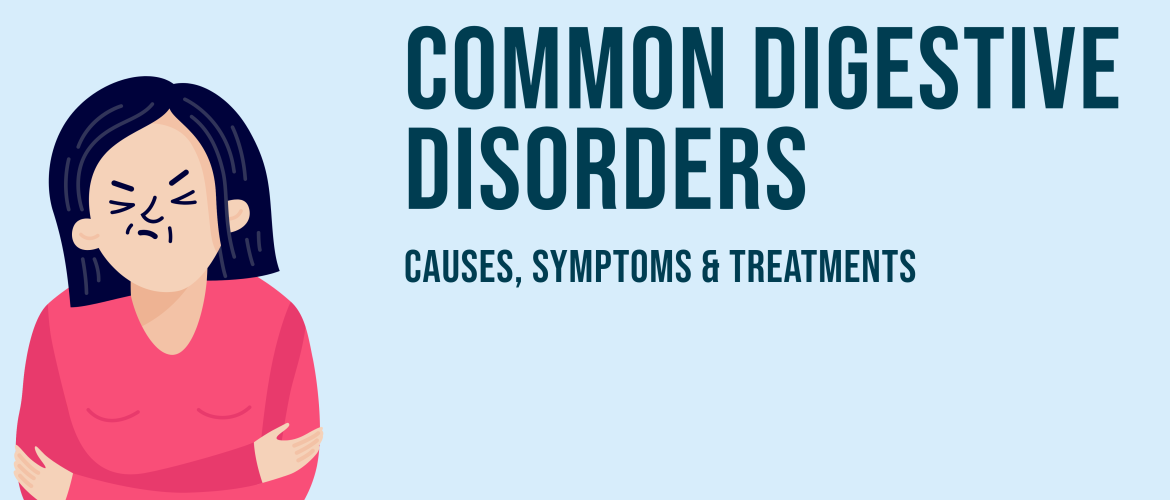Introduction:
- Briefly explain the importance of digestive health and the impact of digestive disorders on daily life.
- Highlight the purpose of the blog post: to provide an overview of common digestive disorders, including their causes, symptoms, and available treatments.
Gastroesophageal Reflux Disease (GERD)
Causes of GERD:
- Weak lower esophageal sphincter (LES)
- Hiatal hernia
- Obesity
Symptoms of GERD:
- Heartburn
- Regurgitation
- Chest pain
Treatment Options for GERD:
Lifestyle modifications:
- Avoiding trigger foods (e.g., spicy or acidic foods, caffeine)
- Maintaining a healthy weight
- Elevating the head while sleeping
Medications:
- Proton pump inhibitors (PPIs) to reduce stomach acid production
Antacids to neutralize stomach acid
Surgical interventions:
- Fundoplication to strengthen the LES and prevent acid reflux
Irritable Bowel Syndrome (IBS)
Causes of IBS:
- Abnormal intestinal contractions
- Sensitivity to certain foods (e.g., FODMAPs)
- Gut-brain axis dysregulation
Symptoms of IBS:
- Abdominal pain or discomfort
- Bloating and gas
- Altered bowel habits (diarrhea, constipation, or both)
Treatment Options for IBS:
Dietary changes:
- Following a low FODMAP diet
- Increasing fiber intake
Stress management techniques:
- Regular exercise
- Relaxation exercises (e.g., deep breathing, meditation)
Medications:
- Antispasmodics to relieve abdominal cramping
- Laxatives or anti-diarrheal agents, depending on symptoms
Inflammatory Bowel Disease (IBD)
Causes of IBD:
- Genetic factors
- Immune system dysfunction
- Environmental triggers
Symptoms of IBD:
- Abdominal pain and cramping
- Diarrhea (often with blood or mucus)
- Weight loss and fatigue
Treatment Options for IBD:
Anti-inflammatory medications:
- Corticosteroids to reduce inflammation during flare-ups
- Immunomodulators to suppress the immune response
Biologic therapies:
- Targeted medications to inhibit specific molecules involved in inflammation
Surgical interventions:
- Colectomy (removal of part or all of the colon) in severe cases
Peptic Ulcer Disease (PUD)
Causes of PUD:
- Helicobacter pylori infection
- Nonsteroidal anti-inflammatory drugs (NSAIDs) use
- Excessive stomach acid production
Symptoms of PUD:
- Abdominal pain (often relieved by eating or taking antacids)
- Nausea and vomiting
- Loss of appetite and weight loss
Treatment Options for PUD:
- Antibiotics for H. pylori eradication
- Acid-suppressing medications:
- Proton pump inhibitors (PPIs) to reduce stomach acid production
- Histamine receptor blockers (H2 blockers) to decrease acid secretion
- Lifestyle changes:
- Avoiding trigger foods (e.g., spicy foods, alcohol)
- Reducing stress levels
Conclusion:
- Summarize the key points discussed in the blog post, emphasizing the importance of digestive health and understanding common disorders.
- Encourage readers to seek medical advice if they experience persistent digestive symptoms.
- Highlight the significance of early diagnosis and appropriate management for better outcomes and improved quality of life.





No comments yet.